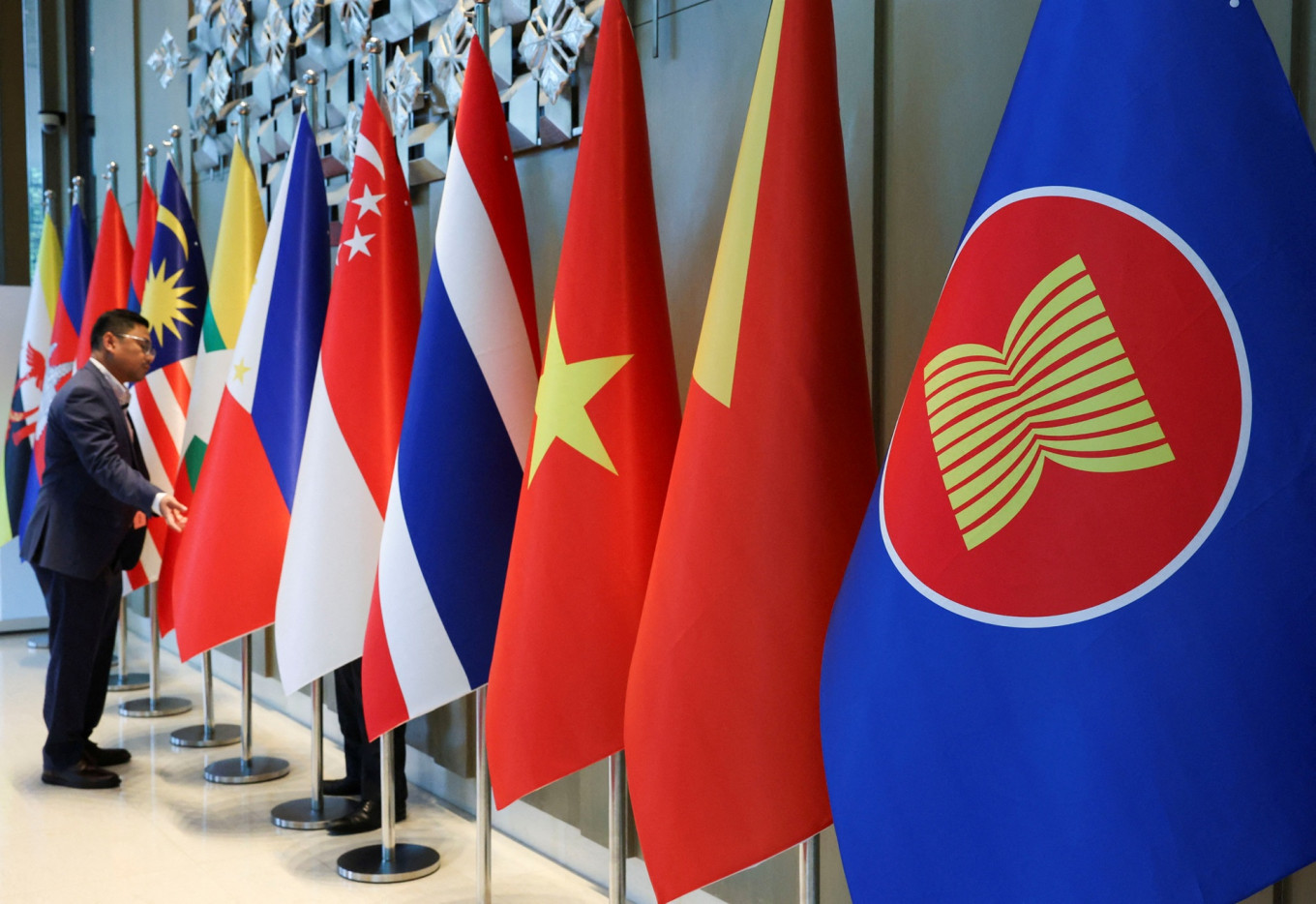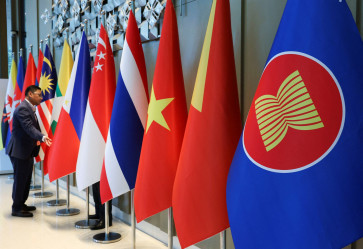Popular Reads
Top Results
Can't find what you're looking for?
View all search resultsPopular Reads
Top Results
Can't find what you're looking for?
View all search resultsGovt sees US tariffs as 'wake-up call' to boost intra-ASEAN trade
Southeast Asian countries are looking to boost trade with their neighbors as a way to stave off the impending impacts of US tariffs following the 90-day reprieve, given that intra-ASEAN trade in 2023 totaled US$759 billion, around a third higher than the region’s total trade with the US last year.
Change text size
Gift Premium Articles
to Anyone
T
he government has acknowledged a need to boost trade with its ASEAN neighbors following the United States’ sweeping “reciprocal” tariff policy on dozens of countries, amid an eleventh-hour pause issued by President Donald Trump on Wednesday.
At the same time, it remains committed to engaging the US in dialogue grounded in a “rules-based global order”, including the frameworks of the World Trade Organization (WTO), according to Deputy Foreign Minister Arif Havas Oegroseno.
“When the dust settles, this might probably a good thing,” Havas said on Thursday, during an online panel discussion hosted by the Centre for Strategic and International Studies (CSIS), Jakarta.
“It’s a wake-up call for us, a very good [moment] for ASEAN, to create strategic regional independence in economic affairs,” he added.
Read also: US tariffs a serious threat to RI GDP growth, Sri Mulyani warns
Still, boosting intra-ASEAN trade won’t be a walk in the park, he continued.
Havas emphasized that the region must reexamine its existing free trade agreements (FTAs), identify and dismantle trade barriers among member states and fast-track the completion of the Digital Economy Framework Agreement (DEFA).


















